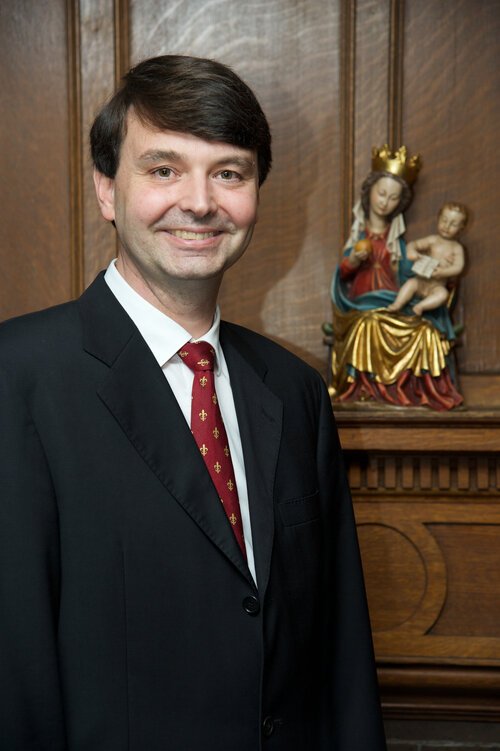Life Is Always a Good
The new pastoral framework from the Dicastery for the Laity, Family, and Life, “Life Is Always a Good” was released on the 30th anniversary of Pope St. John Paul II’s remarkable encyclical Evangelium Vitae. The pastoral guide seeks to help the Church implement the declaration Dignitas Infinita from the Dicastery for the Doctrine of the Faith. Our contemporary world fails to defend and promote every human life, so the Church wants pastoral approaches to help form consciences that will counter “the marginalization and discarding of people.” This latest church document affirms the irreplaceable role of the family in proper education regarding the value of and respect for the person’s dignity and every human life. Pope Francis and the Church have repeatedly declared that every human life is not only unique and unrepeatable but of inestimable value. How do we put this theological insight into practice in the pastoral ministry of human life?
One must consider the ethical and spiritual qualities of every human life at each of its phases. “Life Is Always a Good” points out that the Gospel of Life is not simply an intellectual or spiritual reflection, but something concrete and personal, urging the members of the Church to defend and protect each human life. The Dicastery for the Laity, Family, and Life sees bishops from around the world as they come on their ad limina visits to Rome every five years. They provide a list of the pastoral priorities of these visiting bishops regarding issues affecting human life. The greatest concern was legal abortion followed by contraception, sexual morality/gender, in vitro fertilization, euthanasia and assisted suicide, and women and children trafficking.
The pastoral framework, “Life Is Always a Good,” insists that our first action must be to acknowledge the realities of our modern world. It cites section 47 of Dignitas Infinita, which does not mince words. It refers to “a telling sign of an extremely dangerous crisis of the moral sense, which is becoming more and more incapable of distinguishing between good and evil [...]. Given such a grave situation, we need now more than ever to have the courage to look the truth in the eye and to call things by their proper name, without yielding to convenient compromises or to the temptation of self-deception.” Given the great existential and spiritual disorientation of our times, there is a need for the moral and spiritual accompaniment of the lay faithful by priests, religious, and lay people qualified and willing to carry out this ministry.
Perhaps the most encouraging aspect of this document is the way it urges the Church to “promote appropriate initiatives to offer real alternatives to abortion, in vitro fertilization, euthanasia, and suicide.” The United States Conference of Catholic Bishops welcomed the document and re-affirmed its sponsorship of “Walking with Moms in Need,” a parish-based program to support pregnant and parenting mothers. With this initiative, the Church in the United States responds in a concrete way to the crises of inadequate formation in and understanding of the need to respect human life and to oppose the assaults against life that are everywhere.
The National Catholic Bioethics Center (NCBC) has long understood the importance of formation in the kind of bioethics that places the dignity of the human person at the center of ethical considerations. A quotation from Dignitas Infinita (30) resonates deeply in our work. “The illusion that moral relativism provides the key for peaceful coexistence is actually the origin of divisions and the denial of the dignity of human beings.” The insights from Christian anthropology are key to treating our fellow human beings well, while secular approaches have led directly or indirectly to human rights abuses.
In its conclusion, “Life Is Always a Good” affirms a basic truth. “Every human being is called by God to enjoy the fullness of life and is entrusted to the maternal concern of the Church. We must act on a cultural and educational level to illuminate consciences, ensuring they are able to grasp the meaning behind any weak, lonely, or fragile person.” We have an obligation as Catholics to recognize the dignity of human persons and actively engage in its defense. Our brothers and sisters have the right to be loved and cherished as precious beings at all stages of their lives. The Church points to our mutual responsibility to make a better world.
As Catholics we can never tire of supporting the weak against the strong. This theme was central to Evangelium Vitae. St. John Paul II pointed out that the lives most at risk of killing by the culture of death are those of deeply vulnerable, defenseless, and fragile human beings. Bioethics should prioritize seeking to prevent injustices against the sick and those who are subjected to illicit scientific research. The NCBC strives to do our part in protecting all persons from attacks on their dignity.
Joseph Meaney received his PhD in bioethics from the Catholic University of the Sacred Heart in Rome. His doctoral program was founded by the late Elio Cardinal Sgreccia and linked to the medical school and Gemelli teaching hospital. His dissertation topic was Conscience and Health Care: A Bioethical Analysis. Dr. Meaney earned his master’s in Latin American studies, focusing on health care in Guatemala, from the University of Texas at Austin. He graduated from the University of Dallas with a BA in history and a concentration in international studies. The Benedict XVI Catholic University in Trujillo, Peru, awarded Dr. Meaney an honorary visiting professorship. The University of Dallas bestowed on him an honorary doctorate in Humane Letters in 2022.



